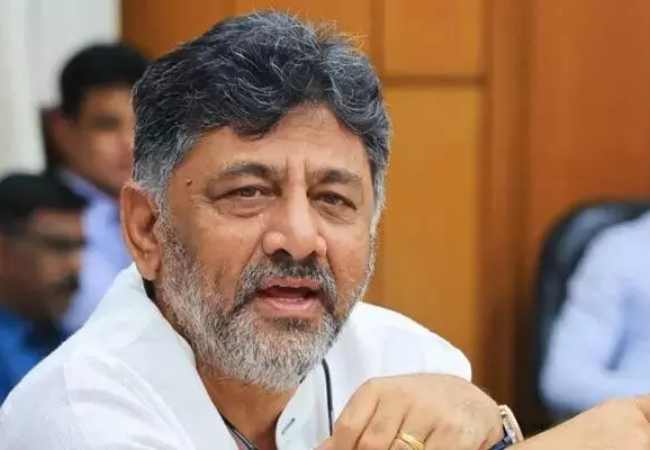New Delhi: Tamil Nadu Chief Minister M.K. Stalin's all-party meeting has reignited the debate on delimitation, with southern states urging the Centre to retain the 1971 Census as the basis for seat allocation for the next 30 years. The resolution passed at the meeting condemned the impending delimitation exercise, citing concerns over political representation and resource allocation.
The controversy arises from fears that the upcoming delimitation, likely based on the 2021 Census, will benefit northern states with higher population growth rates while disadvantaging southern states such as Tamil Nadu, Kerala, and Karnataka, which have successfully controlled their population growth.
Concerns over representation
Southern leaders argue that using the latest Census data for delimitation would reduce or stagnate the number of Lok Sabha seats in the South while significantly increasing representation for northern states like Uttar Pradesh, Bihar, and Rajasthan. However, Home Minister Amit Shah has assured that southern states would not lose seats under a "pro-rata" delimitation method.
According to some studies, if the 2021 Census is used, Karnataka’s seats may drop from 28 to 26, Andhra Pradesh’s from 42 to 34, Kerala’s from 20 to 12, and Tamil Nadu’s from 39 to 31. Meanwhile, the North’s share of Lok Sabha seats is projected to rise to nearly 60%.
Historical context
Delimitation exercises have been conducted in 1952, 1962, 1972, and 2002 under the Delimitation Commission. The current Lok Sabha strength of 543 seats is based on the 1971 Census, as a constitutional amendment froze delimitation until 2026. Under Article 82 of the Constitution, only Census data post-2026 can be used for future delimitation. However, the decadal Census, originally scheduled for 2021, has been indefinitely delayed due to the COVID-19 pandemic.
Experts call for rational formula
Constitutional expert P.D.T. Achary stated that while demands for using the 1971 Census are understandable, a long-term solution is needed. He suggested a differentiated approach, where states with larger populations could have constituencies based on 20-25 lakh people, while smaller states could be allotted seats based on a lower population threshold.
The issue has also sparked political backlash, with Telangana Chief Minister Revanth Reddy accusing the BJP of using delimitation to consolidate power. Karnataka CM Siddaramaiah has also opposed the move, calling it an attempt to weaken southern states politically.
Let the Truth be known. If you read VB and like VB, please be a VB Supporter and Help us deliver the Truth to one and all.
Bengaluru (PTI): Karnataka has proposed a new Information Technology Policy for 2025–2030, offering extensive financial and non-financial incentives aimed at accelerating investments, strengthening innovation and expanding the state's tech footprint beyond Bengaluru.
The Karnataka Cabinet gave its nod to the policy 2025–2030 with an outlay of Rs 445.50 crore on Thursday after the Finance Department accorded its approval.
The policy introduces 16 incentives across five enabler categories, nine of which are entirely new, with a distinctive push to support companies setting up or expanding in emerging cities.
Alongside financial support, the government is also offering labour-law relaxations, round-the-clock operational permissions and industry-ready human capital programmes to make Karnataka a globally competitive 'AI-native' destination.
According to the policy, units located outside Bengaluru will gain access to a wide suite of benefits, including research and development and IP creation incentives, internship reimbursements, talent relocation support and recruitment assistance.
The benefits also include EPF reimbursement, faculty development support, rental assistance, certification subsidies, electricity tariff rebates, property tax reimbursement, telecom infrastructure support, and assistance for events and conferences.
Bengaluru Urban will receive a focused set of six research and development and talent-oriented incentives, while Indian Global Capability Centres (GCCs) operating in the state will be brought under the incentive net.
Incentive caps and eligibility thresholds have been raised, and the policy prioritises growth-focused investments for both new and expanding units.
Beyond incentives, the government focuses on infrastructure and innovation interventions.
A flagship proposal in the policy is the creation of Techniverse -- integrated, technology-enabled enclaves developed through a public-private partnership model inside future Global Innovation Districts.
These campuses will offer plug-and-play facilities, artificial intelligence and machine learning and cybersecurity labs, advanced testbeds, experience centres, and disaster-resistant command centres.
There will also be a Statewide Digital Hub Grid and a Global Test Bed Infrastructure Network, linking public and private research and development, and innovation facilities across Karnataka.
The government has proposed a Women Global Tech Missions Fellowship for 1,000 mid-career women technologists, an IT Talent Return Programme to absorb experienced professionals returning from abroad, and broad-based skill and faculty development reimbursements.
Shared corporate transport routes in Bengaluru and tier-two cities will be designed with Bengaluru Metropolitan Transport Corporation and other transport entities to support worker mobility.
The government said the policy is the outcome of an extensive research and consultation process involving TCS, Infosys, Wipro, IBM, HCL, Tech Mahindra, Cognizant, HP, Google, Accenture and NASSCOM, along with sector experts and stakeholder groups.
It estimates an outlay of Rs 967.12 crore over five years, comprising Rs 754.62 crore for incentives and Rs 212.50 crore for interventions such as Techniverse campuses, digital grid development, global outreach missions and talent programmes.





